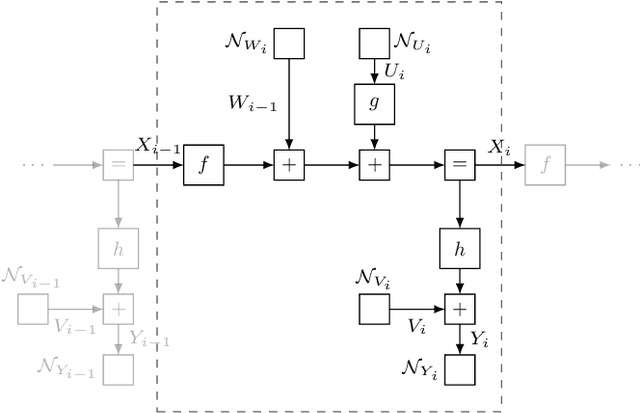Christian Hoffmann
Semi-supervised Learning for Data-driven Soft-sensing of Biological and Chemical Processes
Jul 29, 2021



Abstract:Continuously operated (bio-)chemical processes increasingly suffer from external disturbances, such as feed fluctuations or changes in market conditions. Product quality often hinges on control of rarely measured concentrations, which are expensive to measure. Semi-supervised regression is a possible building block and method from machine learning to construct soft-sensors for such infrequently measured states. Using two case studies, i.e., the Williams-Otto process and a bioethanol production process, semi-supervised regression is compared against standard regression to evaluate its merits and its possible scope of application for process control in the (bio-)chemical industry.
On Approximate Nonlinear Gaussian Message Passing On Factor Graphs
Mar 21, 2019


Abstract:Factor graphs have recently gained increasing attention as a unified framework for representing and constructing algorithms for signal processing, estimation, and control. One capability that does not seem to be well explored within the factor graph tool kit is the ability to handle deterministic nonlinear transformations, such as those occurring in nonlinear filtering and smoothing problems, using tabulated message passing rules. In this contribution, we provide general forward (filtering) and backward (smoothing) approximate Gaussian message passing rules for deterministic nonlinear transformation nodes in arbitrary factor graphs fulfilling a Markov property, based on numerical quadrature procedures for the forward pass and a Rauch-Tung-Striebel-type approximation of the backward pass. These message passing rules can be employed for deriving many algorithms for solving nonlinear problems using factor graphs, as is illustrated by the proposition of a nonlinear modified Bryson-Frazier (MBF) smoother based on the presented message passing rules.
 Add to Chrome
Add to Chrome Add to Firefox
Add to Firefox Add to Edge
Add to Edge